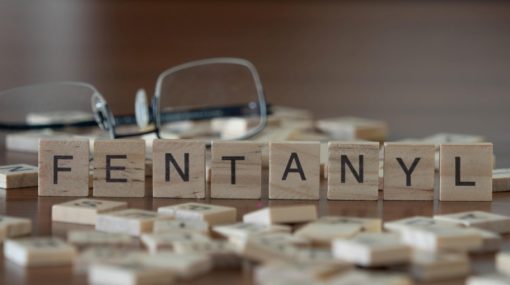Many healthcare providers will recommend therapy for addiction along with detox treatment. You may be wondering how important therapy for addiction really is or what type of therapy is best for you. Common therapy types include cognitive behavioral therapy for addiction, group therapy for addiction, and different types of family therapy for addiction, although there are many others.
In this article:
- Why is Addiction Therapy Necessary for Recovery?
- What is the Difference Between Detox and Therapy for Addiction?
- Types of Therapy for Addiction
- Is Therapy for Addiction Effective?
- Where Can You Find Therapy for Addiction?
Why is Addiction Therapy Necessary for Recovery?
A drug or alcohol addiction is defined by the National Institute on Drug Abuse as a chronic disease characterized by compulsive substance use that continues despite harmful consequences to you or others in your life.1 Alcohol use disorder (AUD) and substance use disorders (SUD) are very common. In 2019, 20.4 million people had a SUD, with 14.5 million of them specifically dealing with alcohol misuse.2
One of the criteria of a substance use disorder, as defined by the Diagnostic and Statistical Manual of Mental Disorders, Fifth Edition (DSM-5), is experiencing cravings or urges to use the substance.3 These will likely still affect you even after you’ve gone through detox since detox only addresses the physical symptoms of withdrawal. Many psychological factors and symptoms persist long after withdrawal has resolved, and these symptoms could cause you to return to substance use.
Therapy for addiction seeks to look beyond just the drug use to identify what may be driving you to use the substance and how you can better cope with psychological stress, triggers, and other factors impacting your drug or alcohol use.
Call 800-908-4823 Toll Free. Privacy Guaranteed. No Commitment.
Help is standing by 24 hours a day, 7 days a week.What is the Difference Between Detox and Therapy for Addiction?
Detox and therapy provide two different essential components to treating substance addictions. Most health professionals will recommend both treatments since each area is vital to recovery.
Detox
The first step on the continuum of addiction care is detox, in which you receive medical care and oversight while going through drug or alcohol withdrawal. Withdrawal symptoms can be unpleasant and even dangerous, depending on the substance, which is why professional supervision is often necessary.
The goal of detox is to achieve a medically-stable, substance-free state. And while this is a helpful first step, it doesn’t constitute professional addiction treatment because it doesn’t address the underlying factors reinforcing your substance use.
Medications may be administered during detox to ease your withdrawal symptoms, including:4</sup.
- Methadone: A full opioid agonist medication used to treat opioid withdrawal.
- Buprenorphine: A partial opioid agonist used to manage opioid withdrawal.
- Benzodiazepines: An anxiolytic that alleviates alcohol withdrawal symptoms.
- Long-acting benzodiazepines: May be used to manage withdrawal from a short-acting benzo or barbiturate.
- Adjunctive medications: Adjunctive medications may be used to supplement detox treatment by treating individual symptoms.
Addiction Therapy
Once detox is complete, the process is not over yet. As the DSM-5 notes, some of the symptoms of substance use disorder include psychological factors that cannot be treated in just a detox program. Some of these factors include:3
- Ongoing cravings for the substance even after it has detoxed from your body
- Anxiety
- Depression
- Unaddressed trauma
- Relational problems caused by your SUD
- Job-related issues
- Stressful triggers in your environment
- A pattern of maladaptive coping skills
- A cycle of shame and guilt related to substance use
- Lingering protracted withdrawal symptoms like insomnia
Essentially, detox prepares you to enter substance abuse treatment, free of the acute effects of substances. And with addiction therapy, you begin to do the work toward creating lasting change.
Types of Therapy for Addiction
You have several options when considering therapy for addiction. Some of the most common, evidence-based therapies used are cognitive behavioral therapy (CBT), group therapy, family therapy, contingency management, and motivational therapy.
Cognitive Behavioral Therapy for Addiction
CBT is a therapeutic approach centered around the belief that our thinking patterns determine our feelings and behaviors. The goal of CBT is to help you challenge certain thoughts and beliefs so that it will lead to a change in your emotions and actions as well.
Mental health professionals will guide you through activities like identifying triggers that lead to substance use and learning coping skills and activities that can replace the substance use. A central component to this approach is looking forward to potential problems that may arise and establishing plans and coping strategies to deal with those potential problems.5,6
Group Therapy for Addiction
Group therapy, which is facilitated by a mental health or substance use counselor, allows you to learn from others who are experiencing substance addiction as well. Considering that isolation, loneliness, and shame are highly associated with drug and alcohol addiction, groups can help alleviate these psychological stressors.7
Group therapy sessions may focus on different topics or skills, such as interpersonal process groups which help patients fix issues in relating to others, issues that they may have attempted to fix by using substances.7
Family Therapy for Addiction
Family therapy not only deals with your issues with addiction but also addresses other problems that may be occurring simultaneously, such as family conflict, parenting issues, depression, and unemployment.6
The therapy sessions will include you and at least one other person in your family system. Sometimes this looks like couples therapy, parent/child sessions, or whole family counseling. Sessions will often focus on learning new skills the family members can use to improve areas in the home environment and resolve relational conflict.
Contingency Management
This approach utilizes tangible rewards as a way to reinforce desired behavior, such as abstaining from the substance you are trying to stop using.6 Some treatment programs will reward you with vouchers that can be used to purchase items, while other places may offer prizes for meeting behavioral goals set by the treatment team.
Motivational Interviewing
This technique is often used by mental health professionals to deal with any resistance you may have to change. Your therapist may ask questions to identify the obstacles you have standing in the way of change and then help you find ways to overcome those obstacles. This is a very effective approach that is slightly different than just guiding you through a step-by-step process of changing behaviors.
Is Therapy for Addiction Effective?
Research shows that when you combine detox treatments involving medications along with addiction therapy, you give yourself the best chance of success in recovery.1
Multiple studies have been done to determine the effectiveness of the therapies mentioned above. CBT is probably the most researched and commonly used therapy for SUDs. The skills you learn while participating in CBT, such as self-monitoring and craving recognition, are often utilized after treatment has ended.8 Research shows that if you have SUD along with another mental health condition, receiving CBT will significantly improve your outcomes in recovery than if you do not receive CBT.7
Studies also predict that if you participate in a contingency management program, like voucher-based reinforcement, you will engage in treatment longer and will experience longer periods of abstinence and greater improvement in other areas of your personal life.7
A study that was done with patients recovering from alcohol addiction confirmed that marital and family therapy was more effective at helping patients sustain abstinence and improve relational functioning than individual therapy alone.7
Most research indicates that treatment programs combining multiple types of therapy have the best long-term outcomes on recovery.
Where Can You Find Therapy for Addiction?
Most treatment programs for SUD and AUD include some form of therapy in their care. Each of the following programs will utilize therapy for addiction:
- Free treatment centers that are funded by the state are a great option if you do not have health insurance or can’t afford a rehab program.
- Private-pay centers often have smaller waiting lists and more amenities if you can afford the treatment costs.
- Residential and inpatient treatment programs
- Partial hospitalization and intensive outpatient programs will provide medical care and therapeutic interventions while allowing you to return home in between appointments.
- Outpatient services usually refer to weekly therapy appointments that are recommended once you leave residential treatment.
Therapy for addiction is best utilized once you have gone through a detox process and managed your withdrawal symptoms.
Ongoing Therapy After Rehab
Attending rehab is an important step in your recovery, but the journey does not end there. Since addiction is a chronic condition, relapse is a common part of the recovery process for many people. You will most likely have cravings to use the substance again after leaving rehab. Continuing to engage in therapy in the long run will help you in preventing relapse or even recognizing when you do relapse and need to adjust your recovery treatment accordingly.
Determining which treatment program is best for you depends on several factors. If you or someone you know has SUD or AUD, please call 800-908-4823 (Who Answers?) to speak to a rehab support specialist about available treatment options.
Resources
- National Institute on Drug Abuse. Understanding Drug Use and Addiction.
- Substance Abuse and Mental Health Services Administration. (2020). Key Substance Use and Mental Health Indicators in the United States: Results from the 2019 National Survey on Drug Use and Health.
- American Psychiatric Association. (2013). Diagnostic and statistical manual of mental disorders(5th ed.).
- Diaper, A. M., Law, F. D., & Melichar, J. K. (2014). Pharmacological strategies for detoxification. British journal of clinical pharmacology, 77(2), 302–314. https://doi.org/10.1111/bcp.12245
- National Institute on Drug Abuse. (2020). Treatment Approaches for Drug Addiction.
- National Institute on Drug Abuse, Advancing Addiction Science. Behavioral Therapies.
- Substance Abuse Treatment: Group Therapy [Internet]. Rockville (MD): Substance Abuse and Mental Health Services Administration (US); 2005. (Treatment Improvement Protocol (TIP) Series, No. 41.) 1 Groups and Substance Abuse Treatment.
- Substance Abuse and Mental Health Services Administration (2016). Early intervention, treatment, and management of substance use disorders. Facing Addiction in America: The Surgeon General’s Report on Alcohol, Drugs, and Health. Washington, DC: HHS


